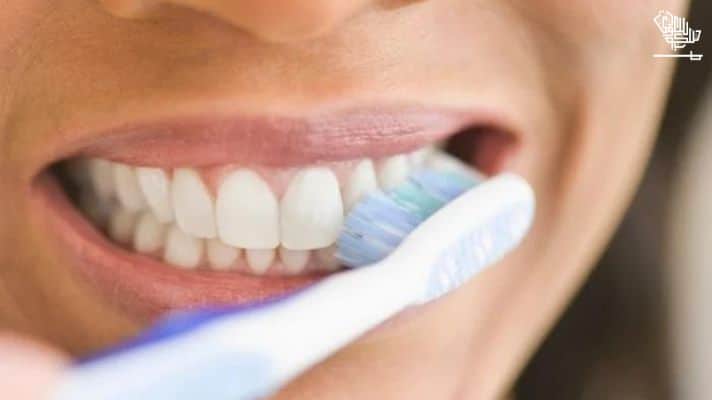Excess toothpaste in your mouth may seem gross, but it benefits your teeth. Do you rinse your teeth after the twice-a-day ritual?
Do you rinse your teeth after brushing? Stop; here’s what the experts say. Dr. Edmond Hewlett, a UCLA School of Dentistry professor and consumer advisor for the American Dental Association, was asked why you shouldn’t rinse your mouth with water after brushing your teeth. Here’s his answer.
Why it’s essential to skip rinsing with water after brushing your teeth
Fluoride is an essential ingredient in toothpaste. It helps make the enamel harder and resistant to cavity-causing acids. It’s the most effective ingredient in your toothpaste. So make sure yours has fluoride.
Brushing your teeth cleans away any film and bacteria from food and drinks. When you skip rinsing your mouth with water, fluoride from the toothpaste remains there longer.
This gives a more significant fluoride effect on your teeth. Don’t drink water after brushing for at least 15 minutes. Dr. Hewlett explains that your saliva will clear the toothpaste out so you won’t taste it all day.
I’ve been rinsing all my life.
If this tip is news to you, you may think you’ve undone all the hard work of brushing every day. No, Hewlett says, as long as you brush the standard twice a day two minutes each, the fluoride will remain to protect your teeth.
You are doing what you must for good oral health and dental protection. Not rinsing is an extra step that helps fluoride do its job for longer and better.
“A person’s fluoride levels in saliva are higher if they don’t rinse,” Hewlett said. But brushing is not a waste of your time if you do rinse. He said research is still to determine the difference it makes in the long term to prevent cavities.
Check that your toothpaste contains fluoride.
Recommended: Top 5 Best Diet Plans of 2022 to Keep You Going
Your dental health plays a role.
Every person has different risk levels for getting cavities, Hewlett said.
“If you typically don’t get cavities, you should continue using fluoride toothpaste. It is likely the decision to rinse or not won’t affect you.”
While those who struggle with cavities are better off not rinsing. Also, consult your dentist to find out why you regularly get cavities. It could be you snack on sugary foods too often or not brushing your teeth regularly enough.
Recommended: Top Ten Best Face Serums In The World
Are you rinsing your teeth with mouthwash after brushing?
A fluoride mouthwash is OK. You will still get the same effect. Rinsing with a mouthwash without fluoride is similar to rinsing with water.
Tips on brushing your teeth
- Your toothbrush must always be a soft bristle toothbrush and never use medium or hard. Hewlett says medium and hard toothbrushes increase the risk of gum recession.
- It doesn’t matter if you floss after or before you brush your teeth—Floss at least once a day to remove plaque and stuck food.
- Never brush your teeth aggressively. It’s unnecessary for your teeth and can cause gum recession.
- Brush gently along the gum line to help prevent gum disease.
- Consult only your dentist for personalized advice. They understand your oral health profile.
This article contains information for educational and informational purposes only and is not health or medical advice. Please consult a doctor or other qualified health provider regarding a medical condition or health objectives.
DISCLAIMER: The images/videos/logos showcased on this page are the property of their respective owners. We provide credit and sources wherever possible. However, If you find that your image/video is displayed on this blog without authorization, please contact us with the relevant details and a link to the image, and we will promptly address your concerns.

Faisal Malik is an accomplished author and the Chief Editor at Saudi Scoop. With a passion for delivering insightful and engaging content, he leads the editorial team, covering diverse topics that resonate with readers. His expertise in journalism and storytelling ensures high-quality, well-researched articles that inform and inspire.




